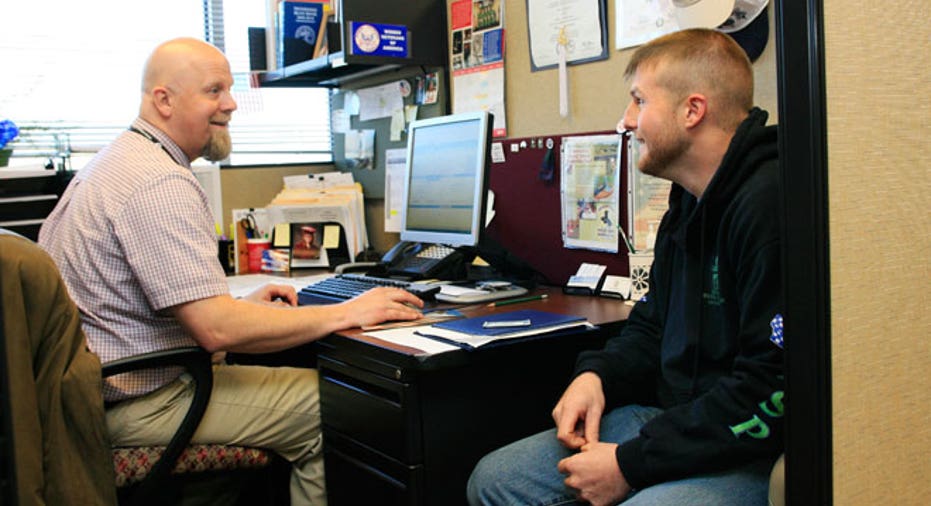7 Original Answers for Cliché Interview Questions

Throughout your career, you will participate in many, many job interviews. In all of these interviews, there are a few questions you will hear time and time again. What are your strengths? What are your weaknesses? Why should we hire you? Even though these questions are incredibly cliché, there’s a reason so many interviewers rely on them.
Your answers to the cliché questions say a lot about you. They can make or break your chance at landing the job. It’s essential to prepare original answers for the cliché questions you know you’ll hear at your next job interview. The strongest answers are unique and will give you a leg up in the competition.
Here are seven of the most cliché interview questions and how to answer them with originality:
1. Tell me about yourself. Employers will often begin the interview with this one. Because it’s so vague, this answer truly needs to be prepared ahead of time. You can answer using your elevator speech. Talk briefly about three areas of your career: job history, most impressive accomplishments, and relevant goals. Your interviewer already has your resume, so rather than memorizing your background, you need to expand on what makes you different and emphasize your passion. Remember to keep it concise.
2. Why do you want to work here? This question is designed to show hiring managers if you’ve done your research before the interview. You should enter the interview knowing plenty of background information about the company, recent news surrounding the company and industry, and specific details about the position. Understand the company culture and mission. Use what you learn to highlight the detailed reasons you want the job and why your background makes you a perfect fit for the company.
3. What are your biggest strengths? Your strengths and weaknesses tend to be paired together by interviewers, so it’s important to have answers for both. When it comes to your strengths, you need to tailor your answers to the job description. In addition to a laundry list of responsibilities, job descriptions will often list soft skills required for the role. If you have these qualities, list them as your greatest strengths in the interview. It’s not enough, however, to just say your biggest strength is your ability to communicate. You need to show them why by telling a story that showcases a time when you used your skills to accomplish a goal.
4. What is your biggest weakness? On the flip side comes your weaknesses. This one is tough because it’s extremely easy to give a cliché answer. Avoid giving a strength disguised as a weakness like, “I’m a perfectionist.” Interviewers know this is a cop-out. Instead, choose a real weakness and put a positive spin on it. Talk about the fact that you realize it’s a problem, and discuss the ways you’re working to improve. For example, “I tend to rush through tasks because I want to get them done quickly, but I am learning to step back and put a bit more emphasis on quality than speed. I’ve started to become both efficient and effective.”
5. Where do you see yourself in five/10 years? Your answer to this question should demonstrate your desire to commit to the job and grow within the company. Talk about how you want to learn everything you can and expand your skills to benefit the company. Mention your desire to move up in the company over time. Explain that you want this job to be the start of a long career with the company.
6. How do you handle conflict? When interviewers ask this (or similar questions about teamwork, leadership, etc.), they are looking for you to describe specific examples of your experience. Describe a time when you faced conflict in the workplace. Explain the situation, how you handled it, and what were the results. Don’t forget to tell the story from start to finish to show how you accomplished your goal.
7. Why should we hire you? This question might be one of the last things you’re asked in an interview. Like #1, it’s pretty vague so it’s important to have an answer prepared. Talk about your best skills and accomplishments that show why you, and you alone, are the perfect person for the position. Use specific details from the job description and emphasize why you are capable of doing them best. If you’re not asked this question, you might be asked, “Is there anything else you’d like to tell me?” Use the same principles to answer this question. End your interview by proving why you’re the only person for the job.
Even though all of these questions are fairly cliché, you can use them to truly shine in your interview. The fact that they’re so cliché is an opportunity. Expect to be asked these questions and answer them with stories tailored to make you the best candidate.
Read More from Glassdoor:
Top 10 Jobs That Give Back Year Round
90% Twitter Employees Believe Business Will Improve Post-IPO
What To Do If You Get Multiple Job Offers
6 More Job Search Behaviors To Avoid



















